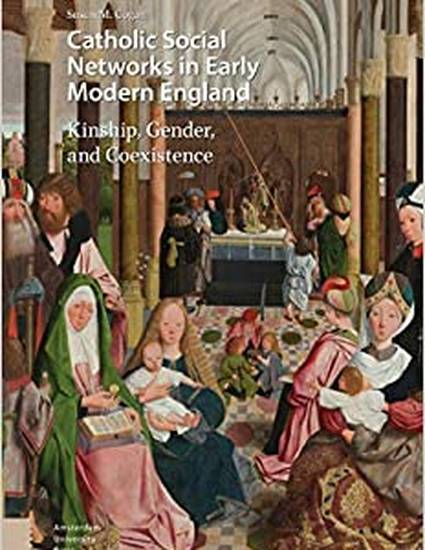
Article
Catholic Social Networks in Early Modern England: Kinship, Gender, and Coexistence
Journal of Family History
(2022)
Abstract
In her first book, Catholic Social Networks in Early Modern England: Kinship, Gender, and Coexistence, Susan Cogan provides a multicounty study of interlocking kinship, cultural, patronage, and political networks among elite Catholics from the fifteenth through the early seventeenth century. Cogan navigates a middle ground between existing national and local studies of Catholic communities with her regional investigation of Leicestershire, Northamptonshire, and Warwickshire in the Midlands. Rather than proposing a unified Catholic community stretching across the diverse landscape of England or focusing tightly to tell the story of one county or one family, Cogan's regional study allows her to identify broader, detailed patterns of Catholic relationships, networks, and community that functioned on multiple levels over generations. Moreover, she investigates how men and women worked within their socially-constructed gender roles to create different and overlapping strategies that maximized opportunities and protection for those within their networks. Ultimately, Cogan aligns herself with scholars such as Muriel McClendon and William Sheils, contending that the majority of English Catholics valued harmony over conflict and sought to coexist as peacefully as possible in a Protestant nation, even if that coexistence meant overlooking divergent religious beliefs and practices.
Disciplines
Publication Date
July, 2022
DOI
https://doi.org/10.1177/03631990221086518
Citation Information
Lisa McClain. "Catholic Social Networks in Early Modern England: Kinship, Gender, and Coexistence" Journal of Family History Vol. 47 Iss. 3 (2022) p. 338 - 341 Available at: http://works.bepress.com/lisa_mcclain/29/
